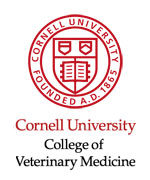"Control of Domestic Dog Diseases in Protected
Area Management and the Conservation of Endangered Carnivores"
Karen Laurenson, Titus Mlengeya, Fekadu Shiferaw, Sarah Cleaveland
Disease is an increasing threat to many of the world’s
endangered carnivores, from those in North America to those
in Africa. To date, rabies and canine distemper have given
the greatest concern, causing severe declines in and local
extirpations of a range of species, including the black-footed
ferret, Channel Island foxes, Ethiopian wolves, African wild
dogs and lions. In many of these examples, particularly in
Africa, outbreaks in wildlife have occurred when pathogens
have spilled over from a surrounding reservoir of domestic
dogs. With dog populations and thus this risk of spillovers
constantly increasing, many protected area managers are taking
measures to reduce this disease risk to endangered carnivores.
The range of approaches available includes reducing disease
in target species, reducing disease incidence in the reservoir
dog population and preventing contact between the target
and reservoir species. Reducing disease risk in endangered
carnivores can be effected by directly vaccinating or treating
endangered individuals. This approach has been tried for
black-footed ferrets, African wild dogs and Channel Island
foxes, but has been limited by logistical and technical constraints
such as the availability of safe and efficacious vaccines.
Reducing disease incidence in reservoir dogs has been tried
by directly vaccinating or treating or indirectly through
reducing the size of the dog population by culling or limiting
reproduction. Dog vaccination has been carried out around
several protected areas in Tanzania such as the Serengeti
NP, Ruaha NP and Udzungwa NP and in Ethiopia, particularly
the Bale Mountains National Park, to protect the Ethiopian
wolf. If done with sufficient scale and commitment, this
approach has been effective. Culling and limiting dog population
size face considerable cultural challenges. Education campaigns
to encourage responsible dog ownership have been conducted
in Ethiopia, although with limited effect. Future work to
reduce the need for dogs in Ethiopia is planned. Reducing
contact could be achieved through fencing or other physical
barriers, restraining dogs or through reducing human and
thus dog movements in wildlife habitat. Fences are a common
feature of protected areas in South Africa, but have not
always prevented rabies outbreaks, particularly when small
carnivores may be a vector from reservoir dogs or a component
of the reservoir themselves. Encouraging owners to tie dogs
has had limited success in Ethiopia. Overall, wildlife managers
are ill-equipped to reduce disease threats to endangered
carnivores and, to conduct successful campaigns, currently
available approaches must be tailored to the specifics of
the situation. |
|










